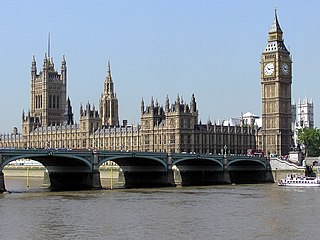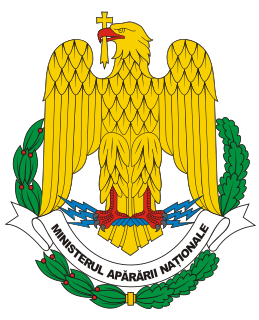
The Colombo Plan is a regional organisation of 27 countries designed to strengthen economic and social development of member countries in the Asia-Pacific region. It was established by Great Britain in Colombo, Ceylon, in 1950. The primary focus of its work is on the development of human resources in the region. Aid to education 1950 to 1983 came to $72 billion, of which $41 billion came from the United States.

The minister of health is the minister of the Crown in the Canadian Cabinet who is responsible for overseeing health-focused government agencies including Health Canada and the Public Health Agency of Canada, as well as enforcing the Canada Health Act, the law governing Canada's universal health care system. The current minister is Patty Hajdu.
An audit committee is a committee of an organisation's board of directors which is responsible for oversight of the financial reporting process, selection of the independent auditor, and receipt of audit results both internal and external.

The Government of Pakistan abbreviated as GoP, is a federal government established by the Constitution of Pakistan as a constituted governing authority of the four provinces, two autonomous territories, and one federal territory of a parliamentary democratic republic, constitutionally called the Islamic Republic of Pakistan.

The European Space Research Organisation (ESRO) was an international organisation founded by 10 European nations with the intention of jointly pursuing scientific research in space. It was founded in 1964. As an organisation ESRO was based on a previously existing international scientific institution, CERN. The ESRO convention, the organisations founding document outlines it as an entity exclusively devoted to scientific pursuits. This was the case for most of its lifetime but in the final years before the formation of ESA, the European Space Agency, ESRO began a programme in the field of telecommunications. Consequently, ESA is not a mainly pure science focused entity but concentrates on telecommunications, earth observation and other application motivated activities. ESRO was merged with ELDO in 1975 to form the European Space Agency.

The Military Staff of the European Union (EUMS) is the directorate-general of the European Union's (EU) External Action Service (EEAS) that contributes to the EU's Common Security and Defence Policy (CSDP) by providing strategic advice to the High Representative (HR/VP) and commanding operations through its Military Planning and Conduct Capability (MPCC) operational headquarters. From the end of 2020 the MPCC will also be capable of running executive operations of up to 2500 troops, i.e. the size of one battle group, as well as 3 non-executive missions.

The government of Singapore consists of several departments, known as ministries and statutory boards in Singapore. Ministries are led by a member of the cabinet and deal with state matters that require direct political oversight. The member of the cabinet heading the ministry is known as the minister, who is supported by a junior minister known as the minister of state in Singapore. The administrative management of the ministry is led by a senior civil servant known as a permanent secretary.

The Joint Research Centre (JRC) is the European Commission's science and knowledge service which employs scientists to carry out research in order to provide independent scientific advice and support to EU policy. The JRC is a Directorate-General of the European Commission under the responsibility of Mariya Gabriel, European Commissioner for Innovation, Research, Culture, Education and Youth. The current Director General of the JRC is Stephen Quest, who took office on 01/05/2020, succeeding Vladimír Šucha. Its Board of Governors assists and advises the Director-General on matters relating to the role and the scientific, technical and financial management of the JRC.

The European Food Safety Authority (EFSA) is the agency of the European Union (EU) that provides independent scientific advice and communicates on existing and emerging risks associated with the food chain. EFSA was established in February 2002, is based in Parma, Italy, and for 2021 it has a budget of €118.6 million, and a total staff of 542.

The Parliamentary Office of Science and Technology (POST) is the Parliament of the United Kingdom's in-house source of independent, balanced and accessible analysis of public policy issues related to science and technology. POST serves both Houses of Parliament.

The Ministry of National Defence is one of the fifteen ministries of the Government of Romania.

The World Assembly of Youth (WAY); French: Assemblée Mondiale de la Jeunesse, Spanish: Asamblea Mundial de la Juventud is the international coordinating body of national youth councils and national youth organisations. The full members of WAY are national youth councils. WAY currently has 140 member organisations from all continents. As the international coordinating body of national youth councils, WAY has special consultative status with the United Nations, the highest status possible for a non-governmental organization. WAY co-operates with the UN and many of its special agencies, particularly with UNAIDS, UNEP, ILO, UNESCO, UNFPA, UNICEF, UNDP, UNCTAD and WHO.
The University of Ljubljana's Faculty of Public Administration is a faculty involved mainly with training students in management and finance in the context of the public sector.
Neville Keery is a writer and activist and has had a career as a journalist, administrative officer, Senator, and Senior European Commission Official.

The University of Public Service is higher educational institution in Budapest, Hungary. Established in 2012, it is one of the youngest universities in Central and Eastern Europe, however, its faculties as former independent colleges look back much earlier.
Nina Yurievna Belyaeva is a Russian public policy researcher, PhD, professor and head of the Public Policy Department. at National Research University Higher School of Economics, Moscow, Russia. Member of Russian Political Science Association, which is a part of IPSA.

Dr. Moudi A. Al-Humoud, is currently a professor of management at the College of Business Administration, Kuwait University. She served as president of Arab Open University, a pan Arab university operating in Kuwait, Kingdom of Saudi Arabia, Oman, Bahrain, Jordan, Lebanon, Egypt, Sudan and Palestine.
Pan Suk Kim is a South Korean professor in the field of public administration. Kim's research interests include theories and practices of public administration, public governance, and human resources management and development. Kim is currently a professor of Public Administration in the Department of Global Public Administration, College of Government and Business, Yonsei University, Mirae Campus in South Korea. He is also currently a member of the International Civil Service Commission of the United Nations and the International Director of the American Society for Public Administration. He was a Fulbright Scholar in the Department of Government at Georgetown University in 2005, a visiting scholar in residence in the School of Public Affairs at the American University in 2015, and a visiting scholar in the Trachtenberg School of Public Policy and Public Administration at George Washington University in 2020.












